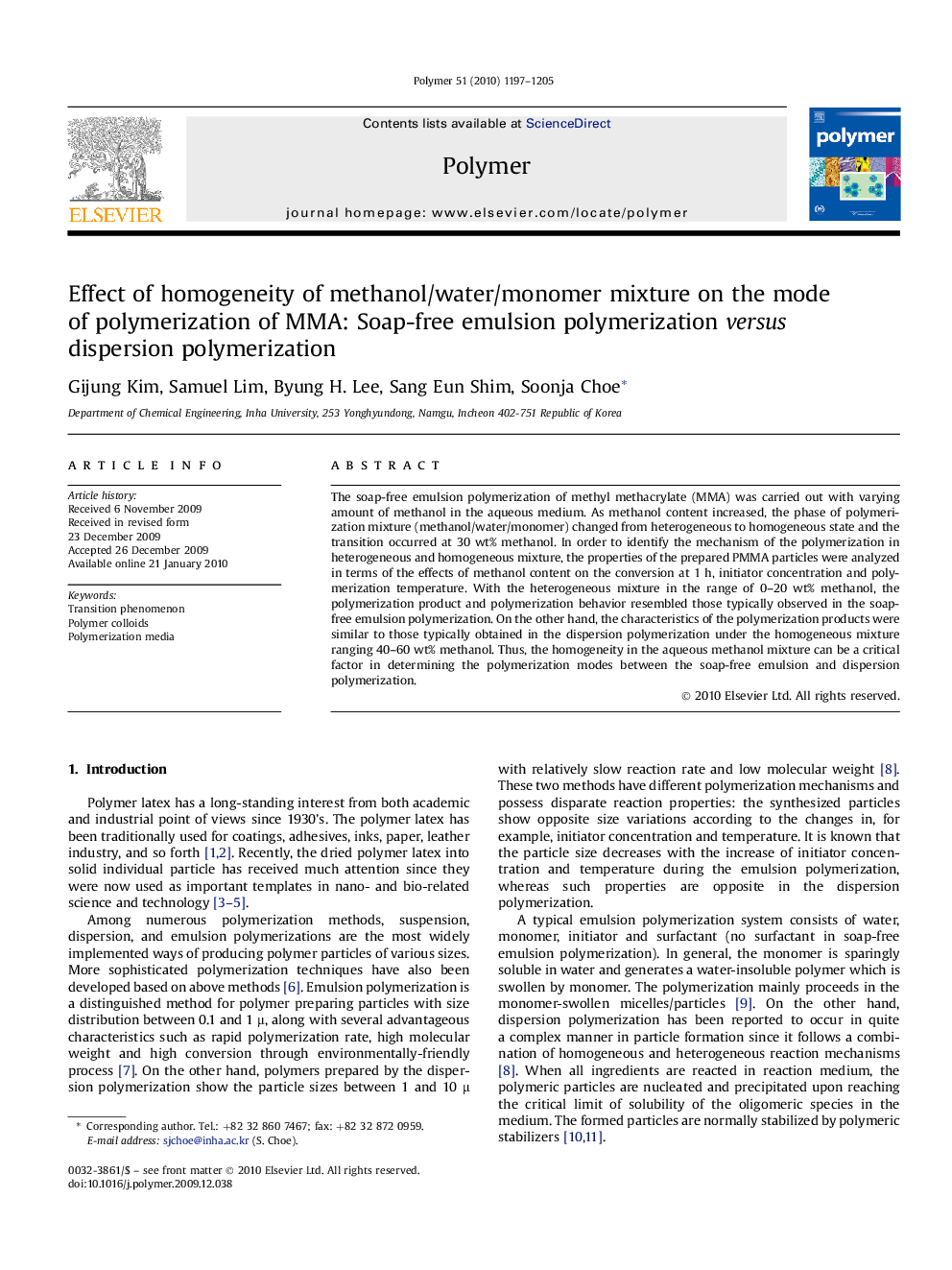| Article ID | Journal | Published Year | Pages | File Type |
|---|---|---|---|---|
| 5185206 | Polymer | 2010 | 9 Pages |
The soap-free emulsion polymerization of methyl methacrylate (MMA) was carried out with varying amount of methanol in the aqueous medium. As methanol content increased, the phase of polymerization mixture (methanol/water/monomer) changed from heterogeneous to homogeneous state and the transition occurred at 30Â wt% methanol. In order to identify the mechanism of the polymerization in heterogeneous and homogeneous mixture, the properties of the prepared PMMA particles were analyzed in terms of the effects of methanol content on the conversion at 1Â h, initiator concentration and polymerization temperature. With the heterogeneous mixture in the range of 0-20Â wt% methanol, the polymerization product and polymerization behavior resembled those typically observed in the soap-free emulsion polymerization. On the other hand, the characteristics of the polymerization products were similar to those typically obtained in the dispersion polymerization under the homogeneous mixture ranging 40-60Â wt% methanol. Thus, the homogeneity in the aqueous methanol mixture can be a critical factor in determining the polymerization modes between the soap-free emulsion and dispersion polymerization.
Graphical abstractDownload full-size image
